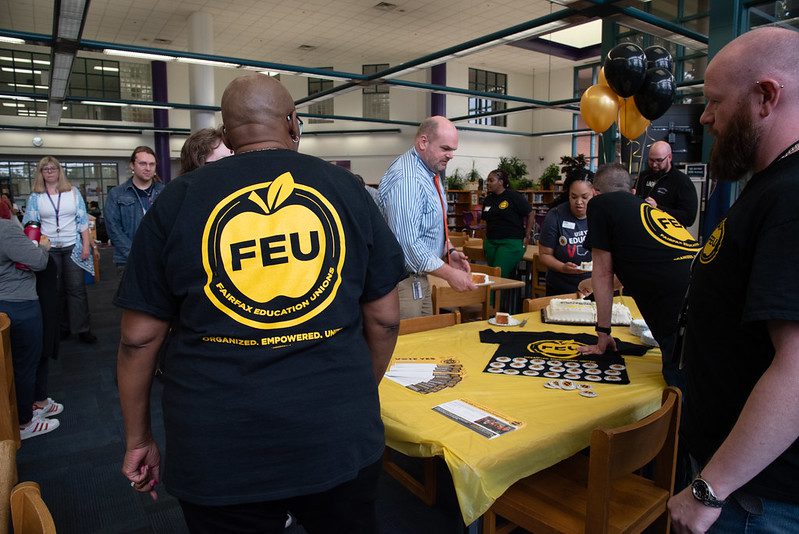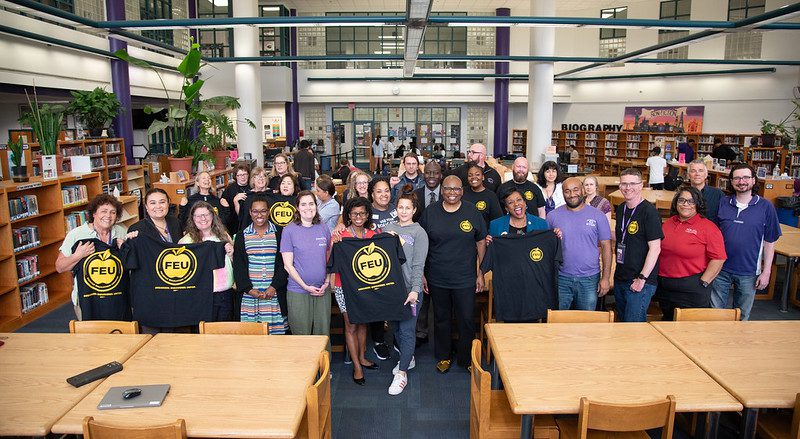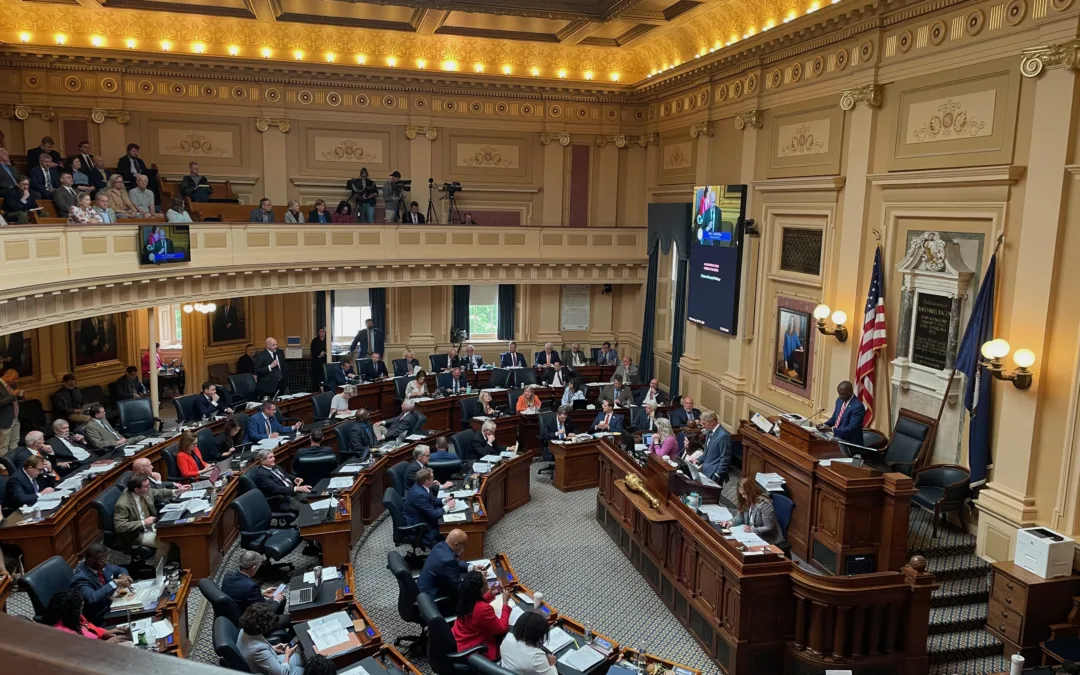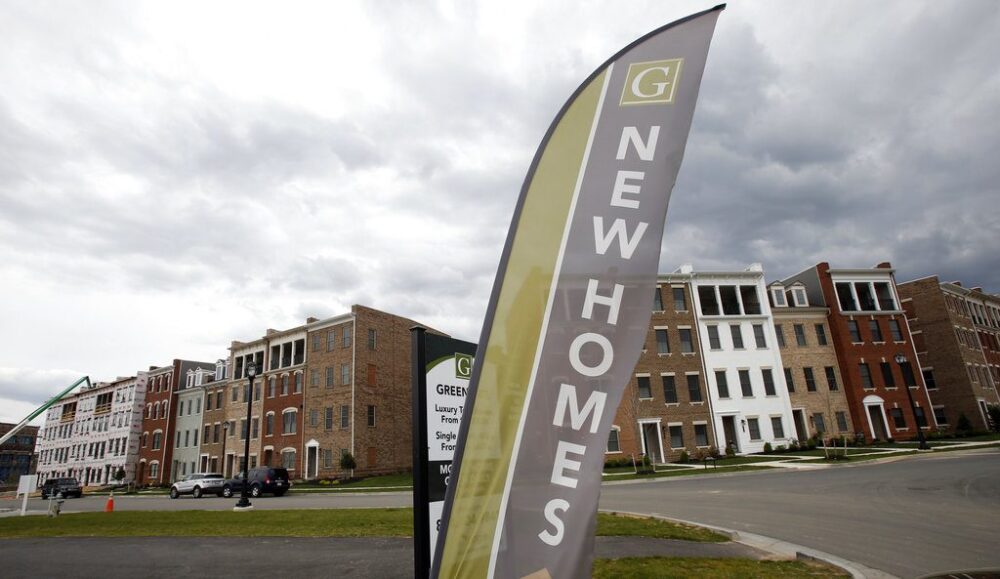
Photo by Alexander Grey on Unsplash
After the Youngkin Administration released new guidance on how transgender students should be treated in the state’s public schools in July, districts across the state began debating whether to adopt the new model policy. To date, just two – Spotsylvania and Roanoke counties – have adopted the policy, which removes protections for transgender and nonbinary students that had previously been in place.
The model policy is in its third iteration in as many years and rolls back former Gov. Ralph Northam’s policies, which required schools to use students’ preferred pronouns and allowed students to use facilities like bathrooms and locker rooms consistent with their gender identities, rather than their sex assigned at birth.
Driving much of the concern over the Youngkin’s new model policy are provisions allowing school staff to keep parents fully informed about their children’s “nicknames,” pronouns, or elements of social transitioning that may occur at school.
In addition to the policy’s dismissal of students’ identities, advocates worry these policies might enable schools to “out” trans and nonbinary students to potentially unsupportive or abusive parents.
Youngkin’s new policy also requires legal documentation for a student to use different names and pronouns than what appears in their official record and directs students to use bathrooms and locker rooms that align with their biological sex.
Several of Virginia’s largest school systems, including Arlington, Fairfax, and Prince William Counties in Northern Virginia, have already rejected the policies, and Richmond City schools are expected to follow suit.
“Calling a student by their chosen name seems like the very least we could do for our kids,” Richmond Public Schools superintendent Jason Kamras said.
Virginia Beach’s school board recently deadlocked in a vote on whether to adopt the new policies, effectively blocking their adoption for the time being.
The vast majority of the state’s school districts have not taken a position on the new policies at all, and according to the ACLU of Virginia, they don’t have to.
“The law that tasks the Virginia Department of Education with creating these model policies [regarding] the treatment of trans students … that code provision does not have an explicitly articulated enforcement mechanism for districts who do not adopt model policies,” said ACLU of Virginia attorney Wyatt Rolla.
Virginia’s Republican attorney general, however, begs to differ.
At Youngkin’s request, Attorney General Jason Miyares recently released an advisory legal opinion on the new model policy, claiming that it lines up with federal and state nondiscrimination laws and that school boards must implement the new rules.
Under state law, school districts are required to adopt policies that align with the guidance, but Rolla is correct about the law providing no way to enforce compliance.
But the Miyares legal opinion and related statements by both Youngkin and administration spokespeople suggest that the governor is gearing up for legal battles stemming from noncompliance with the model policy.
When asked about what consequences school divisions face if they refuse to adopt the new policy, Miyares spokeswoman Victoria LaCivita said, “If a school board voted not to adopt policies consistent with the model policies, parents can sue under current state law. Our office will be monitoring all litigation and will be prepared to participate where doing so is appropriate and parents have valid claims.”
Responding to the same question, a Youngkin spokesperson referred to a memo from Superintendent of Public Instruction Lisa Coons sent to school superintendents earlier this month, which stated: “Local school boards that elect not to adopt policies consistent with those released by the Department for the upcoming school year assume all legal responsibility for noncompliance.”

VIDEO: Virginia Democratic lawmakers announce deal for military education benefits program
Virginia military families were angered by eligibility restrictions for the Virginia Military Survivors & Dependents Education Program last month....

Fairfax educators overwhelmingly vote for, secure union representation
With an overwhelming vote of nearly 97% of instructional staff and more than 80% of operational staff voting yes, Fairfax Education Unions (FEU)...

Fairfax educators rally for historic collective bargaining effort to improve teaching conditions, student learning
The Fairfax Education Association and the Fairfax County Federation of Teachers have banded together to ensure that educators and school support...

Op-Ed: The Question of School (E)Quality: Virginia Needs to do Better for English Learner Students.
On April 23rd, the Virginia Board of Education concluded the second round of stakeholder feedback sessions for their new school performance and...

State budget compromise reached by Youngkin, General Assembly leaders
The General Assembly is expected to vote on a new state budget on Monday after Youngkin and Democratic legislators reportedly struck a compromise....

Federal funding coming to help Virginia’s affordable housing problems
More than $55 million will be distributed to redevelopment and housing authorities in 26 different localities across Virginia. The federal...





